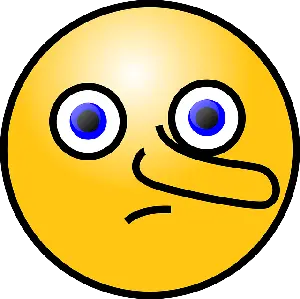The liar paradox
Published:
 The Liar Paradox is a classic paradox in logic and philosophy that has perplexed scholars for centuries. The paradox arises from a self-referential statement that leads to a contradiction, challenging our assumptions about truth and meaning. Numerous solutions have been proposed, but the paradox continues to spark debates and discussions among scholars, making it an essential topic for anyone interested in the foundations of logic and the nature of truth.
The Liar Paradox is a classic paradox in logic and philosophy that has perplexed scholars for centuries. The paradox arises from a self-referential statement that leads to a contradiction, challenging our assumptions about truth and meaning. Numerous solutions have been proposed, but the paradox continues to spark debates and discussions among scholars, making it an essential topic for anyone interested in the foundations of logic and the nature of truth.
The Liar Paradox goes as follows: “This statement is false.” At first glance, this seems like a simple statement. But upon closer examination, it becomes clear that the statement leads to a contradiction. If the statement is true, then it must be false, because it claims to be false. On the other hand, if the statement is false, then it must be true, because it claims to be false. This creates a paradoxical situation where the statement is both true and false at the same time.
The Liar Paradox has been the subject of much debate and analysis over the years. Some philosophers and logicians have tried to solve the paradox by changing the rules of logic or language, while others have attempted to eliminate the paradox altogether.
One possible solution to the Liar Paradox is to recognize that the statement is self-contradictory and cannot be resolved. This means that the assumption that the statement is true or false is false. This, in turn, means that the statement “this statement is false” is a nonsensical question.
Another possible solution to the Liar Paradox is to distinguish between truth and verifiability. This means that a statement can be true or false, but it may not be possible to determine its truth or falsehood. This approach allows for the possibility that the statement “this statement is false” may be both true and false at the same time, but it cannot be verified as either true or false.
The Liar Paradox has implications for a wide range of areas, including philosophy, linguistics, and computer science. It has led to the development of more rigorous systems of logic, such as modal logic and paraconsistent logic, which are designed to handle self-referential statements without leading to contradictions.
In conclusion, the Liar Paradox is a classic paradox that challenges our assumptions about truth and meaning. It highlights the limitations of language and the potential for self-referential statements to lead to logical contradictions. While the paradox remains unsolved, it continues to inspire new ideas and approaches to the foundations of logic and philosophy.